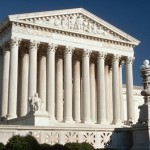 The Third Circuit Court of Appeals has reversed the Tax Court on the transfer of historic rehabilitation tax credits from the New Jersey Sports and Exposition Authority (“NJSEA”) to Pitney Bowes through the purchase of a partnership interest that held the credits.
The Third Circuit Court of Appeals has reversed the Tax Court on the transfer of historic rehabilitation tax credits from the New Jersey Sports and Exposition Authority (“NJSEA”) to Pitney Bowes through the purchase of a partnership interest that held the credits.
NJSEA formed a partnership, Historic Boardwalk Hall (“HBH”), in order to sell federal historic rehabilitation tax credits (section 47) earned when it redeveloped an Atlantic City property known as East Hall. A number of investors purchased interests in the partnership. The partnership interest allowed the investors to claim ownership of the rehab tax credits for the purposes of offsetting other federal taxable income. Pitney Bowes purchased a partnership interest and used the credits to offset its taxable income.
The IRS challenged the validity of the partnerships and the two sides found themselves in the U.S. Tax Court. The Tax Court found in favor of the taxpayers in Historic Boardwalk Hall v. Commissioner, 136 T.C. No. 1 (2011). The IRS appealed.
The appellate court focused on the government’s argument that Pitney Bowes “should not be treated as a bona fide partner in HBH because [it] did not have a meaningful stake in the success or failure of the partnership.” The Third Circuit viewed the transactions through the lens of the Second Circuit’s opinion in TIFD III-E v. United States, 459 F.3d 220 (2d Cir. 2006) (better known as “Castle Harbour“) and the Fourth Circuit’s holding in Virginia Historic Tax Credit Fund LLC 2001 v. Commissioner, 639 F.3d 129 (4th Cir. 2011). Applying that perspective, the Third Circuit determined that Pitney Bowes was not a bona fide partner in the HBH partnership. It follows that Pitney Bowes therefore was not entitled to use the historical rehabilitation tax credits held in the partnership.
The taxpayer argued in favor of the substance of the partnership, but was rebuked by the Court of Appeals with this strong language, “[r]ecruiting teams of lawyers, accountants, and tax consultants does not mean that a partnership, with all its tax credit gold, can be conjured from a zero-risk investment of the sort [Pitney Bowes] made here.” As suggested by the amici in this case, this opinion may have a chilling effect on future historic redevelopment projects by limiting the transfer of the valuable historic rehabilitation tax credits generated by those projects.
Read the opinion here.
Historic Boardwalk Hall v. Commissioner, No. 11-1832 (3d Cir. August 27, 2012)
 The taxpayers in Historic Boardwalk Hall are seeking review in the United States Supreme Court. As reported here last summer, the Third Circuit Court of Appeals reversed the Tax Court and denied the public/private partnership between the New Jersey Sports and Exposition Authority (“NJSEA”) and Pitney Bowes the benefit of historic rehabilitation tax credits because the two parties were not bona fide partners.
The taxpayers in Historic Boardwalk Hall are seeking review in the United States Supreme Court. As reported here last summer, the Third Circuit Court of Appeals reversed the Tax Court and denied the public/private partnership between the New Jersey Sports and Exposition Authority (“NJSEA”) and Pitney Bowes the benefit of historic rehabilitation tax credits because the two parties were not bona fide partners. 

